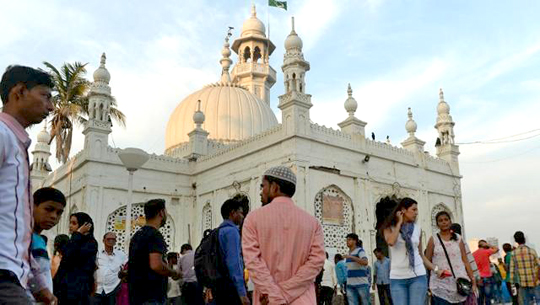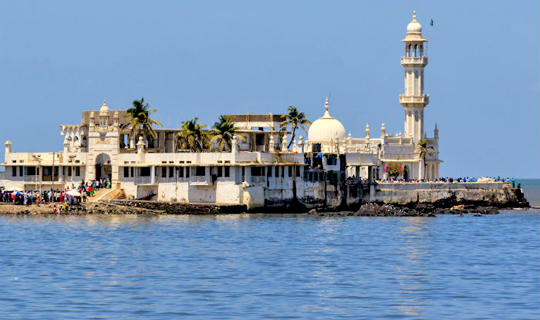New Delhi, Aug 26: In a significant judgement, the Bombay High Court today lifted the ban imposed on women from entering the sanctum sanctorum of Haji Ali dargah here, saying it contravenes the fundamental rights of a person.

The court has, however, stayed its order for six weeks following a plea by Haji Ali Dargah Trust, which wants to challenge it in the Supreme Court.
"The ban imposed on women from entering the Haji Ali dargah is contrary to Articles 14, 15, 19 and 25 of the Constitution of India. Women should be permitted to enter the dargah on par with men," a division bench of Justices V M Kanade and Revati Mohite Dere said.
Under the said Articles, a person is guaranteed equality before law and has the fundamental right to practice any religion he or she wants. They prohibit discrimination on grounds of religion, gender and so on, and provide freedom of conscience and free profession, practice and propagation of religion.
The bench allowed a PIL filed by two women, Zakia Soman and Noorjehan Niaz, challenging the ban on women's entry in the sanctum sanctorum of the dargah.
"The state government and the Haji Ali Dargah Trust will have to take proper steps to ensure safety and security of women entering the dargah," the court said.
The high court had in June this year reserved its verdict on the petition.
The PIL states that gender justice is inherent in Quran and the decision contravenes the Hadith, which proves that there is no prohibition on women visiting graves.
The Maharashtra government had earlier told the court that women should be barred from entering the inner sanctorum of Haji Ali dargah only if it is so enshrined in the Quran.
The ban on women's entry cannot be justified if it is on the basis of an expert's interpretation of the Quran, the then Maharashtra Advocate General Shrihari Aney had argued.
The dargah trust had defended its stand saying that it is referred in Quran that allowing women close proximity to the dargah of a male saint is a grievous sin.
Advocate Shoaib Memon, appearing for the trust had earlier said, "Women are not allowed inside mosques in Saudi Arabia. They are given a separate place to pray. We (trust) have not barred women. It is simply regulated for their safety. The trust not only administers the dargah but also manages the affairs of religion."









Comments
Building structure on graves is prohibited in Islam, visiting such places by men or women both discouraged... It is a grave sin , invoke on graves...In islam it is permitted to men & women to visit graves of their relatives with proper dress with intention to pray for people of graves is permitted and even praying in masjid also permitted..
As a muslim to visit a dargah and pray is shirkh and I request all my muslim brothers and sisters to refrain from doing so as committing shirkh is the biggest sin in Islam. As for Rony`s comments as muslm`s did not support in independence it is high time you refresh your social studies subject. We all know how many muslim countries are supporting non-muslim brothers and sisters by giving them job in their countries in turn which helps them in survival and is this not much greater support from the muslims. This is Independence to live and survive. People grow up and be thankful for the number of muslim countries who have not objected to non-muslims working in their country and you have the audacity to talk against muslims without thinking once about the millions of non-muslim expats.
Why HC and SC needed here? Our prophet muhammad already said that no grave must be built high, if u find one then u must level it to the ground. Thats it case closed already 1400+ years ago . Then why waste time of court and people who comment on such news? Check the whole quran and hadees you will never find something called darga in it.
To my non-muslim friends kindly note that in Masjid al haram (Makkah) both men and women pray together and for Ganesh Kamath Muslim women are allowed inside mosques and have a separate covered place from where they can pray behind the Imam. Kindly refrain from posting things which you do not have knowledge of and stick to only praying part of it and not compare it with women are not allowed to drive etc.
Add new comment